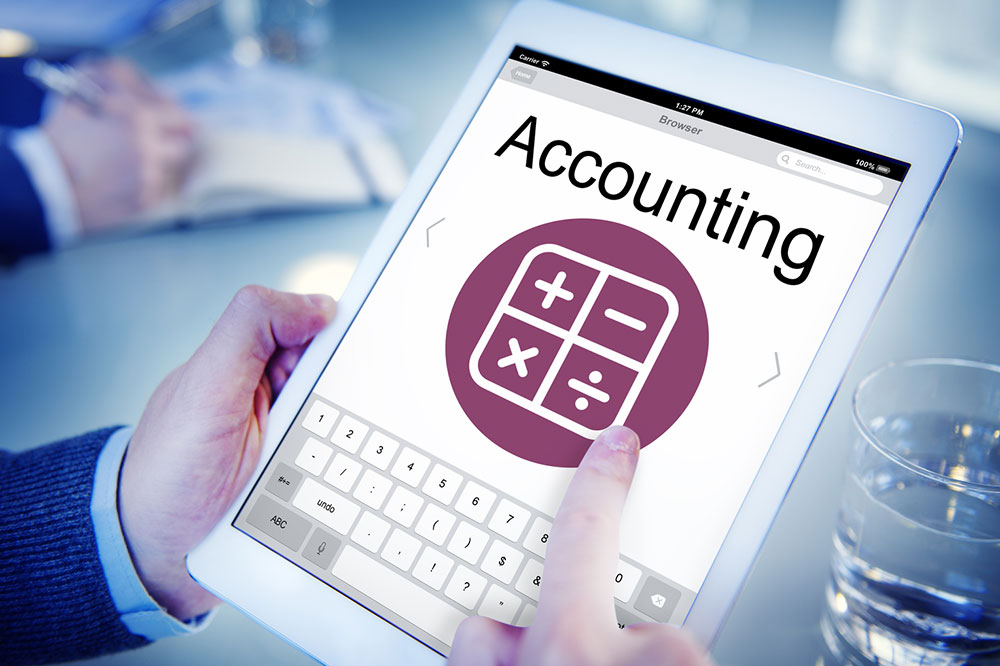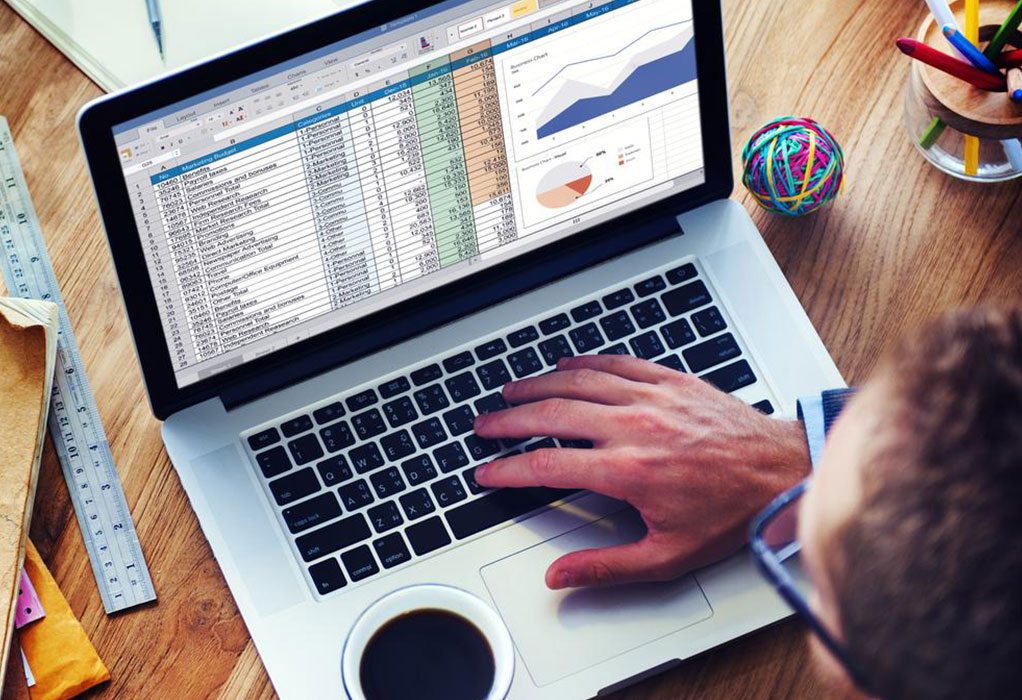How to choose the right accounting software for your business
Accounting is a complicated process with multiple sub-processes that can be quite stressful to navigate. Say, for example, spreadsheets. They are a great help in the accounting process but may not be of much help in and of their own. Today’s financing world demands speedy processing and minimal errors, which spreadsheets may not allow.
Accounting software can manage multiple processes simultaneously and help in streamlining the accounting processes of a business.

Main features of an accounting software
Accounting software can perform several tasks but the most fundamental of them render such software a must-have in any modern-day businesses. The below-mentioned tasks carried out by accounting software effectively help businesses in financial management:
- Invoicing and billing
Invoicing and billing are the core functions of any business. An accounting software handles the production and maintenance of invoices and the process of sending them to customers on due dates. Some also send payment reminders from time to time.
- Payroll
Payroll is another crucial function of a business. You have to pay your employees every month and this process involves leave tracking, deductions, income tax management, overtime calculations, generating payslips, and more. If you find all of these functions in an accounting software, then it is a good option for you.
- Reporting
One of the main purposes of accounting software is report generation. These reports help in making crucial financial decisions.
- Bookkeeping
Bookkeeping is a tedious task when done manually. Most companies look for accounting software to ease the pressure that comes with bookkeeping. The accounting software you choose should be capable of managing each and every financial transaction across departments.
Types of accounting software
Accounting software is advanced programs that can perform a range of times in lesser time periods. They can handle receivables and payables while managing cash flow and payroll. An advanced accounting software may also offer high-level analytics to generate reports. There are different types of accounting software that are classified based on the tasks they perform:
- Small business payroll and accounting
Small businesses may not necessarily have as many departments and functions as established ones; hence, they can go for an off the shelf software program. This software is known as small business payroll and accounting software and can manage most needs of blooming businesses. This type of software comes loaded with accounting tools and reporting options that are needed to process financial data. Some accounting software that fall in this category are QuickBooks and Cougar Mountain Software, among others.
- Business management
This type of software is meant for big business houses that require additional features such as inventory control, customer relationship management (CRM), purchasing, enterprise resource management (ERP), and the like. Because they come with a wider range of features, business management software programs are pricey as compared to other options. Some of the popular names in this category are Everest and NetSuite.
- Web-hosted accounting applications
This type of accounting software makes use of cloud computing to deliver financial capabilities. This new breed of online financial applications is providing safe business environments on the internet, while performing all the functions that a business needs. Some programs that have been doing good in this segment are Quickbooks Online, NetBooks, Sage 50cloud, and NetSuite.
Free accounting software programs
There are certain software programs that offer some services that are free of cost. For example, there is a free version of QuickBooks that lets you maintain customer accounts, create invoices, store bills, get business insights, and handle payrolls. There are more such software programs that can be used by small companies for a short period before they decide to scale up and switch to advanced ones.
How to choose an accounting software
Accounting software can be helpful only when it suits your business needs and takes care of all the inhouse processes without a lot of manual input. Here a few things that you should factor in when choosing an accounting software for your business:
- Conduct a need analysis
The first step towards choosing an accounting software is to conduct a need analysis of your business. A need analysis is the process of understanding the requirement of a certain resource. When it comes to accounting software, you need to analyze both the financial as well as managerial needs.
Analyze the need for your organization on a broad spectrum. It is only fair to assume that you are going to grow from your current standing. So it is advisable to consider your future expectations from the accounting software along with your current needs. A good need analysis at this stage means that you will not have to repeat the process in the next few years .
- Communicate with your staff
Your finance department staff is the best bunch of people to guide you in this decision. At the end of the day, these are the people who are going to use the software to perform various financial tasks. Also, these are the people who will be well-positioned to tell you more about the accounting processes and the alterations they need.
.
While you are at it, ask the team if they have certain expectations from the software and if they have a particular software in mind. Your accountants work on your financial data day in and day out; so, they might have a better understanding of what your business needs to streamline accounts and other financial processes.
- Consider your budget
As discussed above, there are many types of software available in the market and each has a different price tag. Off-the-shelf software programs are more affordable but they come with limited functions, while an advanced accounting software may be more expensive but comes with a bigger suite of functions.
The key is to find an industry-specific software that fits the bill in the present moment; your preferences can be modified as your business grows. Industry-specific software is also known as vertical software and can be bought from a value-added reseller (VAR). This seller will help you with installation, setup, and training, and will be your point of contact (POC) for every time you need an upgradation. Most vertical software programs come with an annual fee and you will also be required to pay additionally for the VAR’s services.
- Talk to software consultants
Software consultants are people who analyze a business and suggest a software that can meet its specific needs. A business software consultant will scrutinize your business and conduct a thorough need analysis before suggesting a few good options that will take care of all your accounting needs, while also fitting your budget. If you already have a few options in mind, a software consultant can help you zero in on the right choice.
- Reach out to other businesses
Talking to others in your industry can also help you in your search of an accounting software. They can not only offer you insights into prevalent accounting trends in your field but can also tell you about a few programs that you can try out. And if they are already using a software, then they can even give an honest review of its service. This can give you ample scope to compare their opinions and reviews with your views and arrive at a wise purchasing decision.
- Create a final list
Right before you choose an accounting software for your company, you can jot down everything you have learned in your quest to find the best accounting software for your business. You can put down everything, right from your current requirement to the budget that you can allocate to it. Don’t forget to create some space for future requirements and upgradability.
Once everything is in place, cross-check your needs with the different software programs available in the market. You probably won’t find one software that meets all your needs but you find one that ticks the maximum number of boxes.
Benefits of an accounting software
If you are still wondering how an accounting software will benefit you, here are a few more points that you can consider:
- Accounting software has simple and fast data entry capabilities that can power your processes and quicken your financial decisions.
- With accounting software, you reduce the chances of error caused at the time of data entry.
- Accounting software programs facilitate better collaboration between different departments of the company. They can also manage teams located across the globe.
- When you invest in accounting software, you substantially reduce operational costs that may take place due to the hiring of in-house teams or outsourcing of bookkeeping processes.
- An accounting software program simplifies tax compliance because you can customize it to handle local tax codes.
- It improves productivity by reducing approval processes and syncing data at multiple levels efficiently.
- Accounting software programs generate timely and detailed financial reports, thereby aiding you in better decision-making.
Top accounting software that you can try
An ideal accounting software automates a business’s financial functions and transactions, and includes modules such as accounts payable, accounts receivable, payroll, billing, and general ledger. Some of the software programs that can do all this more are listed below. These have been rated based on the functions they cover and how well they sync these functions to create an overall efficient, easy-to-use system.
- BuildSmart
BuildSmart is a web-based software that offers industry-specific functions to the construction industry. It combines sub-functions like project and enterprise costing, ledger activity, and more on an effective management platform. Some of the modules that make this software one of the top-rated financial software programs are payroll, procurement, accounting, yard and store management, subcontract management, business intelligence, time, and attendance.
- FreshBooks
FreshBooks provides businesses with an interface that helps them make decisions according to actual data and insights. With this software, you can learn about the total cost of running your business; have enough resources for yearly taxes; and get reports, insights, and a clear understanding of your earnings and expenditures.
- QuickBooks
Quickbooks is an ideal accounting software for small businesses. It has different versions that cater to the needs of different businesses. It provides instant access to vendors, customers, and employee information. A few functions offered by this software include accounts receivable, expense tracking, billing and invoicing, non-profits, project accounting, bank reconciliation, payroll management, and purchase orders.
- NetSuite
NetSuite is an Oracle product and is ideal for fast-growing businesses across industries. It is one of the world’s best cloud ERP solutions that offer a unified platform for all back-office processes. It takes care of accounting, CRM, and e-commerce. NetSuite has inbuilt business intelligence, reporting, and real-time visibility as well. This software empowers businesses of all sizes to achieve their potential by reducing operational inefficiencies allowing them to focus on revenue-generating decisions. NetSuite takes care of accounts receivables, expense tracking, bank reconciliation, fixed asset management, revenue management, warehouse management, and a lot more.
- Sage Business Cloud Accounting
Sage Business Cloud Accounting is for small businesses that need access to their data at any time, anywhere. This software works on a computer or a phone through cloud computing. With Sage’s app, you can manage daily tasks like invoicing, expense tracking, time tracking, and more. It is a multi-language and multi-currency app that is convenient to use and compatible on both Apple and Android phones. Sage takes care of a whole gamut of functions such as accounts receivables, business invoicing, tax management, payroll management, bank reconciliation, etc.




